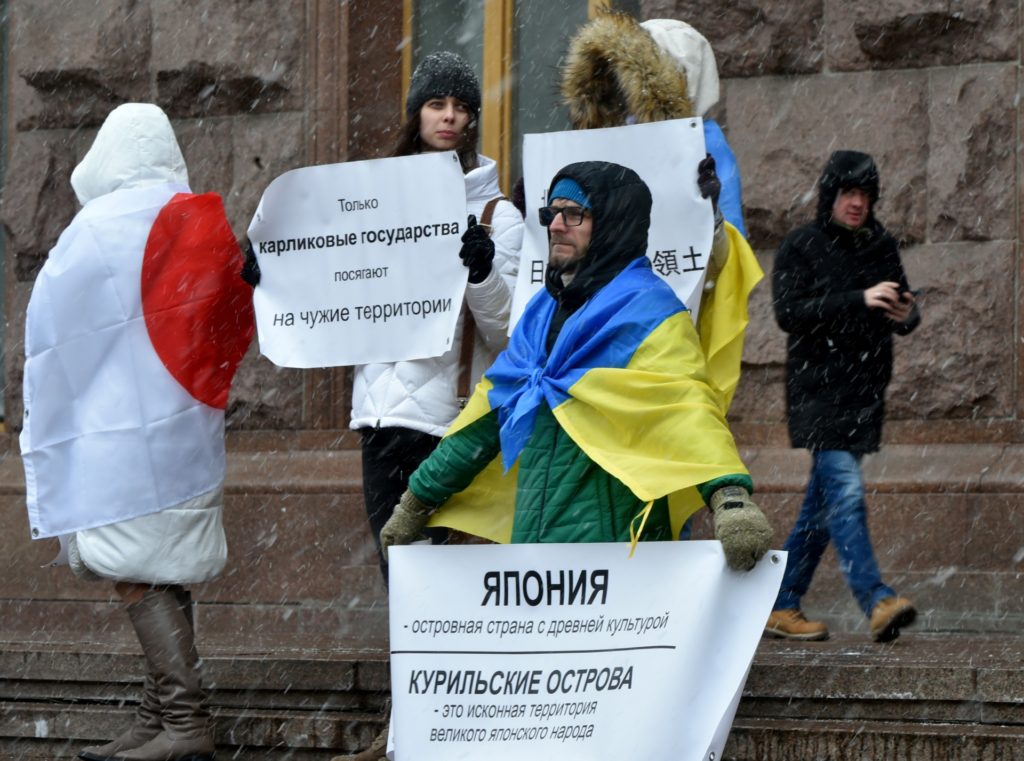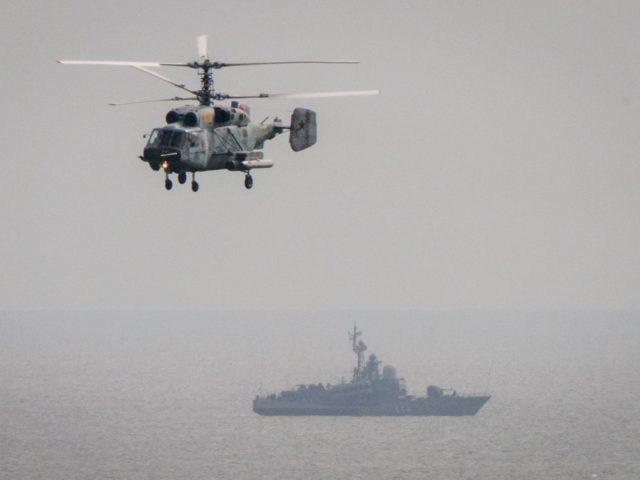The government of Japan protested on Tuesday that the Russian military is staging drills in the Kuril Islands, a contested archipelago north of the Japanese island of Hokkaido, as Japan attempts to host the Summer Olympics.
“We can’t accept Russia’s moves to strengthen its military in the Northern Territories,” government spokesman Katsunobu Kato said, per the Wall Street Journal.
Making remarks at the Chitose military base in Hokkaido, Japanese Defense Minister Nobuo Kishi cautioned that “[Russia] is actively continuing its [military] activity in the Far Eastern region,” according to Russian state media outlet Tass. He nonetheless expressed confidence that Japan’s Self-Defense Forces (SDF) were prepared to deter any Russian aggression. Both men referred to the “Northern Territories” in their remarks, Tokyo’s official term for the islands it claims but over which it exercises no practical control.
The Soviet Union seized the Kurils, which include 56 islands, in 1945 from the Empire of Japan at the end of World War II. Tokyo still claims the southernmost islands but has thus far failed to convince Russia to return them. The Japanese government held full sovereignty over the chain from 1875 when the Russian Empire gave up claims to the Kurils for full control of Sakhalin Island under the Treaty of Saint Petersburg. Japan reclaimed the southern half of Sakhalin Island during the Russo-Japanese War (1905) and later the whole island until 1924. The Soviet Union took back all of Sakhalin in 1945, along with the Kurils.

Activists covered with Ukrainian and Japanese flags hold placards reading “Kuril Islands are an original territory of the great Japanese people” and “Russia doesn’t care about its own territory but likes the others” as they demonstrate in central Kiev to show solidarity with Japan marking Northern Territories Day. – (SERGEI SUPINSKY/AFP via Getty Images)
SDF officials already have good reason to be wary of Muscovite aggression during the Olympics. In 2018, Russian hackers and military personnel reportedly orchestrated a large-scale hack at the Winter Olympics in Pyeongchang, South Korea, and tried to blame it on the North Korean communist regime based in Pyongyang. Russian military planes have consistently ranked among the most frequent violators of Japanese airspace.
Tass noted figures from the Japanese Defense Ministry which stated that the SDF intercepted 258 Russian aircraft, with only China securing a higher total. Russia, for its part, denies that its aircraft illegally enter Japanese airspace.
Apart from the state’s dubious military activities concurrent with the Olympics, Russian sports teams face intense scrutiny for their own conduct. Moscow’s athletes at the Tokyo games are competing under the “Russian Olympic Committee” moniker but athletes may not display the Russian flag or the country’s name on their uniforms. The rebranding comes as punishment for Russia’s state-sponsored doping program, found to have spanned several years and involved over 1,000 of the nation’s athletes. The World Anti-Doping Agency announced last week that it had banned several Russian athletes from the Tokyo games due to suspected cheating.

COMMENTS
Please let us know if you're having issues with commenting.